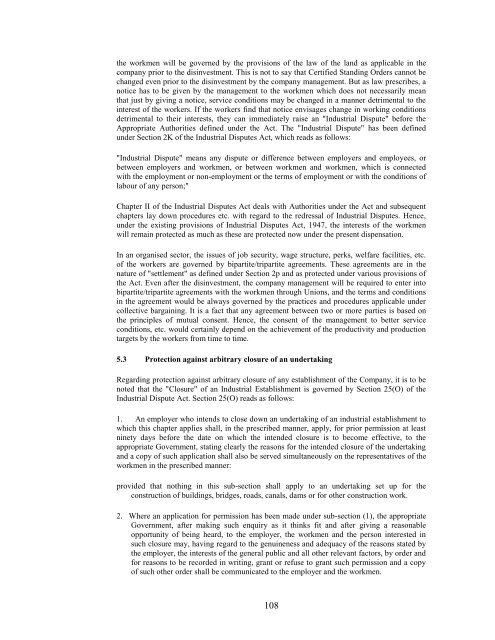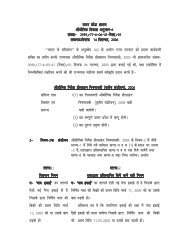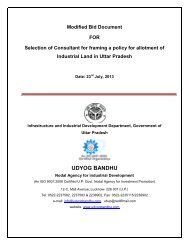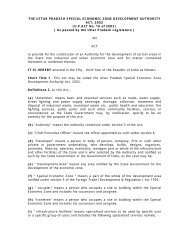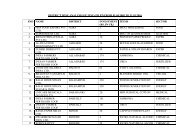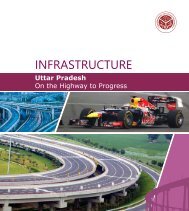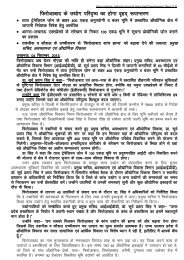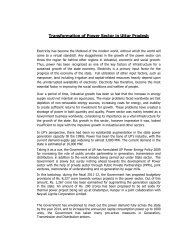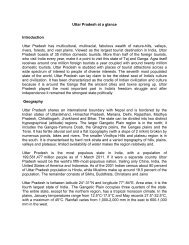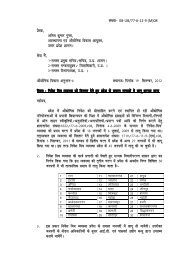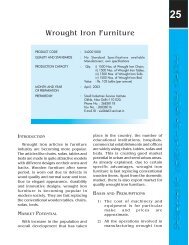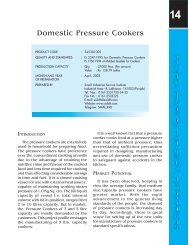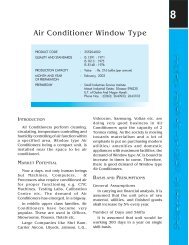PART - III - Udyog Bandhu
PART - III - Udyog Bandhu
PART - III - Udyog Bandhu
You also want an ePaper? Increase the reach of your titles
YUMPU automatically turns print PDFs into web optimized ePapers that Google loves.
the workmen will be governed by the provisions of the law of the land as applicable in thecompany prior to the disinvestment. This is not to say that Certified Standing Orders cannot bechanged even prior to the disinvestment by the company management. But as law prescribes, anotice has to be given by the management to the workmen which does not necessarily meanthat just by giving a notice, service conditions may be changed in a manner detrimental to theinterest of the workers. If the workers find that notice envisages change in working conditionsdetrimental to their interests, they can immediately raise an "Industrial Dispute" before theAppropriate Authorities defined under the Act. The "Industrial Dispute" has been definedunder Section 2K of the Industrial Disputes Act, which reads as follows:"Industrial Dispute" means any dispute or difference between employers and employees, orbetween employers and workmen, or between workmen and workmen, which is connectedwith the employment or non-employment or the terms of employment or with the conditions oflabour of any person;"Chapter II of the Industrial Disputes Act deals with Authorities under the Act and subsequentchapters lay down procedures etc. with regard to the redressal of Industrial Disputes. Hence,under the existing provisions of Industrial Disputes Act, 1947, the interests of the workmenwill remain protected as much as these are protected now under the present dispensation.In an organised sector, the issues of job security, wage structure, perks, welfare facilities, etc.of the workers are governed by bipartite/tripartite agreements. These agreements are in thenature of "settlement" as defined under Section 2p and as protected under various provisions ofthe Act. Even after the disinvestment, the company management will be required to enter intobipartite/tripartite agreements with the workmen through Unions, and the terms and conditionsin the agreement would be always governed by the practices and procedures applicable undercollective bargaining. It is a fact that any agreement between two or more parties is based onthe principles of mutual consent. Hence, the consent of the management to better serviceconditions, etc. would certainly depend on the achievement of the productivity and productiontargets by the workers from time to time.5.3 Protection against arbitrary closure of an undertakingRegarding protection against arbitrary closure of any establishment of the Company, it is to benoted that the "Closure" of an Industrial Establishment is governed by Section 25(O) of theIndustrial Dispute Act. Section 25(O) reads as follows:1. An employer who intends to close down an undertaking of an industrial establishment towhich this chapter applies shall, in the prescribed manner, apply, for prior permission at leastninety days before the date on which the intended closure is to become effective, to theappropriate Government, stating clearly the reasons for the intended closure of the undertakingand a copy of such application shall also be served simultaneously on the representatives of theworkmen in the prescribed manner:provided that nothing in this sub-section shall apply to an undertaking set up for theconstruction of buildings, bridges, roads, canals, dams or for other construction work.2. Where an application for permission has been made under sub-section (1), the appropriateGovernment, after making such enquiry as it thinks fit and after giving a reasonableopportunity of being heard, to the employer, the workmen and the person interested insuch closure may, having regard to the genuineness and adequacy of the reasons stated bythe employer, the interests of the general public and all other relevant factors, by order andfor reasons to be recorded in writing, grant or refuse to grant such permission and a copyof such other order shall be communicated to the employer and the workmen.108


